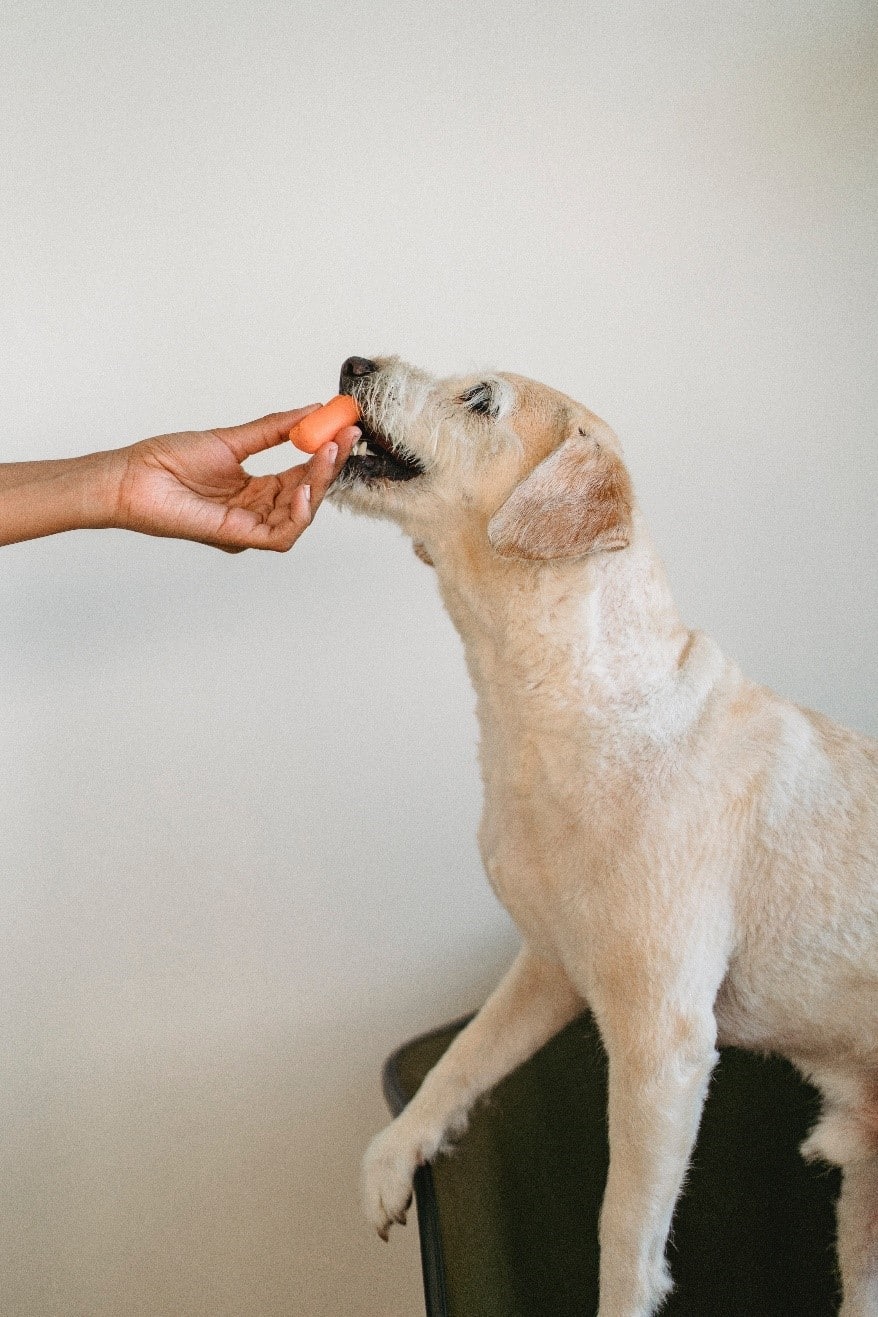

Can Dogs Eat Carrots? All you need to know
Are you planning out your dog’s diet? Wondering if carrots are safe for dogs to eat? Read further to find out whether your dog is allowed to eat carrots or not.
Carrots are quite the versatile vegetable; they can consumed alone as a snack, paired with a roast, and can be added to stock for some much-needed flavor. Apart from its versatility, this vegetable is also known for its nutritional properties. Carrots are packed with vitamins and minerals that make them a great dietary choice for humans.
As a dog parent, you probably want to toss your dog this healthy nutritional treat, but are often stopped by a single thought – can dogs eat carrots?
So, to answer your question: Yes, dogs can eat carrots. In fact, not only can dogs safely munch on a carrot, but it is actually a good, nutrition-packed, and enjoyable treat for them!
1. Can Dogs Eat Carrots?
Carrots are safe for dogs to consume like many other fruits and vegetable. Dogs can actually eat even part of this vegetable, from the carrot itself to its leafy green tops.
2. Are Carrots Good for Dogs?
Carrots are packed with essential vitamins and minerals; nutrients that are quite beneficial for dogs. Here are a few ways in which carrots benefit your dog’s health.
2.1 They Support Your Dog’s Dental Health
As a pet parent, it is quite challenge to keep your dog’s teeth clean. You must start dental maintenance since your dog is a young puppy. However, since plaque buildup is usually an inevitable occurrence for your dog’s teeth, you will naturally have to take your pet for a professional cleaning session. After the session, vets usually recommend adding tough chews to your pup’s routine to prevent plaque buildup. Enter – carrots! Frozen carrots offer great support to your dog’s dental health by gently scraping their teeth and preventing the buildup of plaque.
2.2 They are a Low Calorie, Low-Fat Treat
If the over-indulgence of treats has lead your pooch to grow a tummy or to become diabetic, then carrots serve as a great healthy substitute. Carrots are nutrition-packed, low-calories treats that offer your dog satisfaction for its sweet and crunchy cravings that arise between feeding. With around only 4 calories per baby carrot, they are quite the healthy option for your four-legged friend.
2.3 They Help Regulate Bowel Movement
Carrots contain high quantities of soluble fiber. So, if your pup is experiencing loose stools, it can benefit from carrots in its diet as the fiber will help bulk its stools. However, you must not add large quantities to its diet to quickly as it can experience gas and other intestinal problems. So, remember to start slow and offer them plenty of fresh drinking water to help the easy digestion of fiber.
2.4 They are Rich in Beta-Carotene
Beta-Carotene is classified as a carotenoid, an antioxidant that provides immense benefits, especially when it comes to improving your dog’s eyesight. However, carrots have a cellulose wall that isn’t digestible by dogs, so in order to ensure that your pup reaps full benefits of all the vitamins and minerals, you need to cook the carrots properly.
2.5 They are Rich in Vitamin A
Vitamins play a vital role in your dog’s diet; they are essential to help them grow and remain healthy. Carrots are loaded with Vitamin A, offering your dog various nutritional benefits, including helping their immune system, and giving them healthy skin and a fur coat. The only concern is that you need to be very mindful when giving your dog items containing Vitamin A, including carrots.
3. When are Carrots Bad for Dogs?
Carrots are a quite the healthy and low-cal treat that is only good in moderation. Similar to other fruits and vegetables, carrots are high in natural sugar, which is why dogs find them very taste. Too much sugar can be bad for anyone, including your dog as it can cause weight gain and other health problems. Also, even though dogs typically aren’t at risk for cavities, too many sugary treat such as carrots can lead to dental decay. So, the easiest thing is to apply a single rule – carrots should make up more than 10% of your canine’s daily calories.
4. Ways to Safely Feed Carrots to Your Dog
While most dogs will happily munch on carrots, other fussy eaters might have some problem. However, there are still some ways to incorporate carrots into your pup’s diet.
4.1 With a Complete and Balanced Meal
Just like many other treats, carrots must be given to complement a balanced diet. So, you can add carrots to your dog’s meal for an additional nutrition boost. In some cases, you may also be able to find dog food that contains carrots along with other healthy ingredients that can help fulfil your dog’s nutritional requirements.
4.2 Grated or Shredded Form
You can easily grate or shred carrots to add them on top of your dog’s pre-prepared food for an additional boost of flavor and nutrition. However, you must wash the carrots thoroughly before preparing them for your pet.
4.3 In the Form of Juice
Like humans, most canines enjoy the sweet taste of carrot juice, which luckily happens to be a healthy option! Carrot juice is extremely high in Vitamin A, but the carrot tends to lose its fiber content during the juicing process. So, you should add some pulp back to the juice before giving it to your dog to ensure that it reaps its complete nutritional benefits.
4.4 Steamed and Mashed Carrots
Steaming carrots and then mashing or blending them into a puree can be a great way to add it to your pup’s food in moderation. Remember not to overdo it and steam the carrots too much.
4.5 Frozen Carrots
Frozen carrots help relieve discomfort for teething puppies. However, you must not freeze and feed your pet baby carrots as they can be a choking hazard. While whole frozen carrots offer your fluffy friend a lot of vitamins and mineral, you shouldn’t feed them more than one whole carrot a day.
5. The Bottom Line
You must always check with your veterinarian before giving your dog a new food. The vet can help tell you the ideal serving size that you should offer your pup. All in all, carrots are quite safe for dogs to eat, but only in moderate quantities.
Discover how to create a joyful, healthy home for your pet.
Subscribe to your weekly rundown of practice, real life ideas and training tips straight to your inbox.


